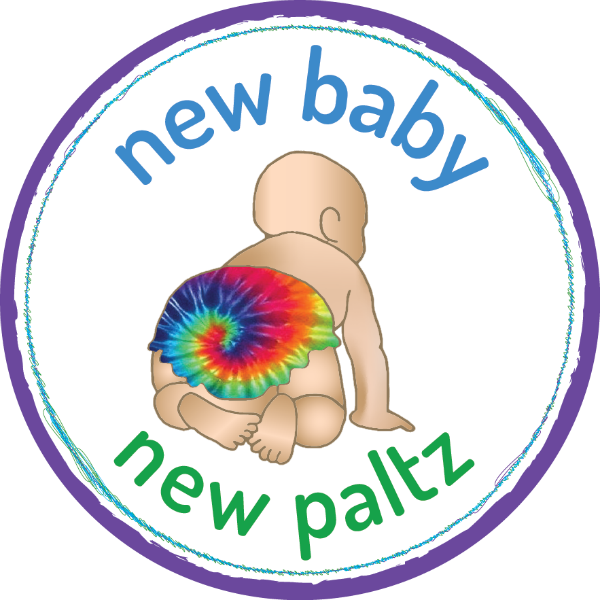
How Long Are You Going to Nurse That Baby?
Many mothers know the answer to this question before their baby is even born.
"A year"
"6 months"
"Until I go back to work"
"If I like it"
"Until my baby is 4"
It's a question with many answers.
Breastfeeding is feeding and so much more. Babies also nurse because they are tired, overwhelmed, lonely, thirsty, sick, in pain, bored, cold, hot, or 89 other reasons. Nursing at a mother's breast stimulates or calms all the senses. It creates and completes a safe habitat for a baby.
The obvious answer if you are a baby is "As long as I need to."
Most babies, if allowed, will wean without any help between ages 2 and 6 years. The normal course of breastfeeding offers many immune and health benefits, optimal nutrition (or complementary nutrition), and emotional security. It creates a bond between mother and child that is intuitive and intimate.
Mothers have reduced risk of breast and ovarian cancers and type 2 diabetes, have reduced fertility, have more stable hormone levels and many other benefits.
You may feel shocked or disgusted when you first learn about nursing toddlers or preschoolers.
Its just not something that happens often in the United States. It seems overwhelming when you are struggling to nurse a new baby, to think that you might have to do THIS for 5 more years.
As you continue nursing and it becomes more enjoyable, if you know someone else who breastfed longer, you tend to pay more attention to what your baby is telling you. When you learn that 17% of US children are obese, or someone in your family has breast cancer or lymphoma, you may also consider continuing, but the real change in your commitment happens when you are in a community that supports extended breastfeeding.
If you are planning on ending breastfeeding less than a year, you will find a lot of support, in our culture, for weaning.
Around 12 months, many babies lose interest in nursing because they are eating a lot of food, so they aren't hungry and they are busy learning physical skills like walking or climbing which take them away from mom.
At this stage, babies wean easily by substituting enough food, drink and other comfort measures. Not surprisingly only about 5% of American babies make it past this benchmark. If you encourage and offer the breast, you can keep all, except for the most independent baby, breastfeeding.
After one year.
There is a developmental shift that happens between 18 and 24 months where babies start returning to their mothers for comfort. if you are still nursing, you will most likely be very surprised to find that your previously independent toddler has started nursing as much as a newborn!
You may be alarmed and afraid that you have done something wrong. If you go with it, setting limits where necessary to keep yourself comfortable, this stage will usually pass into less frequent nursing over the course of a few months.
As the toddler grows, many mothers start to experience discomfort while nursing.
It might be physical because of gymnastic nursing moves, or a pregnancy. It might be emotional because of the greater intimacy demanded by the child.
Two and three year olds want to connect with you while they nurse. They claim your body as their own. They will stare at your body, insist on holding the other breast, have a fit if they can't nurse or hold the nipple or nurse in a particular position or side.
Probably there is nothing in your upbringing that has prepared you for this kind of relationship.
The closest experience you can probably compare it to is one with an adult sexual partner. When you do that, the toddler nursing relationship suddenly seems creepy and invasive. You just would not let a partner treat you that way.
That creepy feeling can be overwhelming.
It feels uncomfortable, really uncomfortable. Many women state: "I just want my body back." and quit.
Our American culture has totally skewed our definition of normal loving behavior. Intimacy in America is defined by candle-lit dinners, lingerie and sex. Many of us are not comfortable with our bodies and body fluids. We are not comfortable with others touching us, even in positive loving ways.
We are not comfortable with how much cuddling and touching babies need. We are not comfortable being a dyad with our babies.
Pay attention to what is happening when you feel uncomfortable.
Is it when you are home, alone, relaxing with your baby? Or is it when you have to answer questions about why your toddler is nursing.
Is it because you have a long list of things to do? Is it because of something that happened to you when you were a child?
Is it because you are pregnant or tandem nursing?
There are no right or wrong answers.
Extended nursing is a journey into yourself and what makes you tick. It consistently points you in the direction of having to be a more patient, compassionate, loving person.
Sometimes it makes you so angry or impatient that you can't take it anymore. You don't believe you can find any more patience.
When this happens, one thing that always helps is to look at your nursing toddler as a baby trying to grow up. Very few mothers set out to nurse a 4 year old, but they keep going because they see the baby in their child. That's good! Consciously relaxing during a breastfeeding session can help you be be that person.
Always remember that your body is your body.
You must have some rules about what happens to it. When you have this kind of clarity, your child may fight it, but eventually, they will do it your way. Nursing is too important to them and they don't want to lose it completely.
Another thing that helps is to have a friend or a mentor who can listen to you when you are ready to quit, which may be happening hourly or daily! They help remind you that all babies wean on their own when they are ready; that every minute you breastfeed really matters to your child; that this is a relationship between you and your baby; and that you can quit if you want to.
Babies take a long time to grow up.
Time plays weird tricks on your mind. Some things happen fast and some happen slowly. A nursing relationship creates a person who is compassionate and loving. It gives you an easy way to handle many, many situations.
It helps you to pay attention to your child and what they are needing. It makes it easy to understand and talk to your children even when they are older.
My job is to encourage and support you to nurse your baby. I would be thrilled if each and every one of you suddenly decided to nurse until your child was done. I know that's not going to happen, because many of you are going to have situations where you are going to think: "It is impossible to continue."
My question to you is: "Why is that?" and whatever you answer is the right answer.
My love to you and your family....
Donna
845-750-4402
